Sandra Guinand
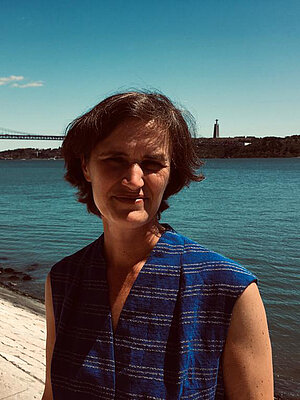
Sandra Guinand is an urban planner and urban geographer. She holds a doctorate in geosciences and the environment from the University of Lausanne and in geography from the University of Paris 1-Sorbonne, and is an associate researcher at EIREST Paris 1-Sorbonne University. She was a Swiss National Science Foundation visiting scholar (2014-2016) at the Center for place, culture and politics at the Graduate Center, City University of New York and Johns Hopkins University as well as at the Department of geography an regional research, University of Vienna (2017-2019). Since May 2022, Sandra Guinand is researcher at the Institute for Urban and Regional Research (ISR) and teaches at the Institute for urbanism, Technical University of Graz.
Her research interests are urban regeneration projects, and socio-economical transformations of urban landscapes, with a specific focus on heritage processes, public-private partnerships and tourism.
Florian Brand
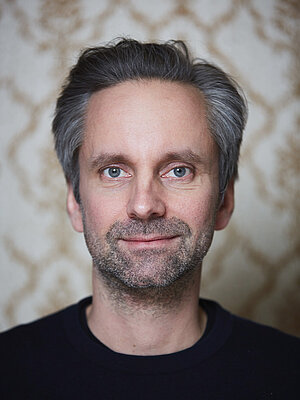
Florian Brand is a Vienna based architect and CEO of HuB Architekten ZT GmbH with a focus on urban renewal, urban design, housing, building renovation and participation. His special interest lies on the connection between the built physical space, the social meaning and the actors. Since 2012 HuB Architekten are contractors of the City of Vienna for Urban Renewal (Gebietsbetreuung Stadterneuerung GB*). Florian Brand is co author of several articles about the Zinshaus market in Vienna and is an expert on Viennese Gründerzeit.
Hanna Szemző
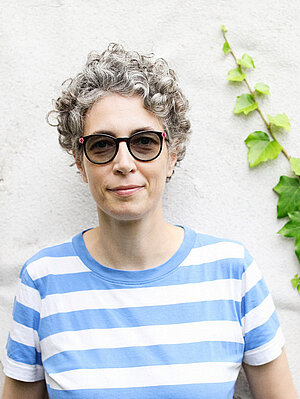
Hanna Szemző is a sociologist, and one of the managing directors of Metropolitan Research Institute, a privately owned think-tank in Budapest. She has over 20 years' of experience in research and consultancy in the fields of urban development and regeneration, social inclusion and governance analysis. Recently, she has been concentrating on issues focusing on adoptive heritage reuse and cultural tourism as the PI and coordinator of the OpenHeritage project and as a project partner in TExTOUR. Her engagement in TransHerit will concentrate mostly on supporting the research in Budapest.
Robert Musil
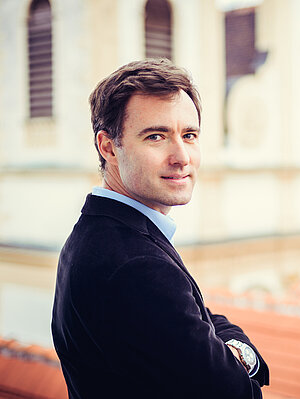
Robert Musil studied geography and history at the University of Vienna and finished his PhD at the University Innsbruck in 2005. His cumulative habilitation work in the field of human geography was approved in 2015 at the University of Vienna. Since 2001, Robert Musil has been a researcher at the Institute for Urban and Regional Research (ISR); between 2007 and 2009 he was post-doc assistant at the University of Salzburg, and between 2014 and 2016 he was visiting professor for economic geography at the University of Vienna. Robert Musil has led the research group „Innovation and Urban Economy“ since 2016 and has been acting director of the ISR since 2018. His research interests lie at the juncture of economic and urban geography, including the areas of housing-market research, spatial innovation, and comparative urban research. His current methodology includes small-scale analyses at the level of individual buildings and building complexes, as well as the geostatical analysis on the individual scale.
Viktória Éva Lélek
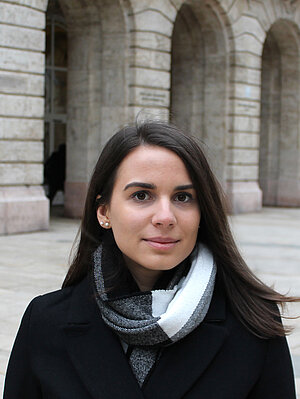
Viktória Éva Lélek holds a degree in architecture from the Vienna University of Technology. During her master studies, Lélek specialised in urban planning and urban history research. In her master’s thesis “Urban Parterre Budapest” Lélek conducted a comparative analysis of the historical housing stock of Vienna and Budapest. The aim of the analysis was to understand the transformation processes of an urban fabric that originates from the era of the Austro-Hungarian Monarchy in both cities, but was exposed to different political, cultural and socio-economic transformation processes during the 20th century. The results were presented at the AISU Bologna, as well as at EAUH Antwerp conferences. Lélek worked several years in the architecture and planning industry on designing new residential buildings, as well as on housing renovation projects. In 2024, Lélek started working as a doctoral student at the Institute for Urban and Regional Research (ISR).
Josef Seethaler
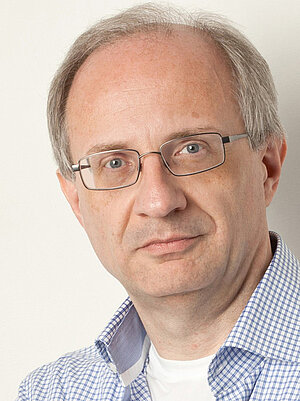
Josef Seethaler is leader of the research group ‘Media, Politics & Democracy’ at the Vienna-based Institute for Comparative Media and Communication Studies (CMC), which is hosted by the Austrian Academy of Sciences and the University of Klagenfurt. He is coordinator of the Horizon Europe project ‘Mapping Media for Future Democracies (MeDeMAP)’ and Austrian partner in several international projects, including the Worlds of Journalism Study (WJS) and the European Commission’s ‘Media Pluralism Monitor’. He has mainly published on political communication, journalism, media systems and media history, and is a member of various scientific advisory boards and reviewer for several European research promotion funds.
Maren Beaufort

Maren Beaufort is a Communication Scientist (Phd, University of Excellence Hamburg) at the Institute for Comparative Media and Communication Studies (CMC) of the Austrian Academy of Sciences (ÖAW) and the University of Klagenfurt and most recently a Research Associate at the European University Institute (EUI). She also takes part in the EU Media Pluralism Monitor (MPM) since 2016, in the Horizon Europe project "Mapping Media for Future Democracies" since 2023 and in the EU-project "Local Media for Democracy". Her consultancy assignments include the membership in the Scientific Advisory Board of the German-Austrian Digital Media Observatory (GADMO), which is the largest anti-disinformation alliance of fact-checkers and academic researchers in Germany and Austria as part of the Europe-wide network of the European Digital Media Observatory (EDMO). Maren is also a member of the "Think Tank for Critical Media Literacy in Adult Education" and of the Scientific Advisory Board of the "Branded Content Research Hub`s BCG Project" of the London College of Communication. Her research focuses on political communication, transforming communication spaces online and offline, democratic information performance and disinformation, usage behaviour and information literacy, as well as on the consequences for public opinion formation, action and responsibility. She has special expertise in research on (digital) media in democratic systems.